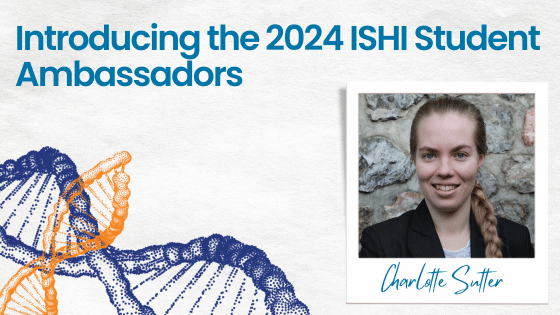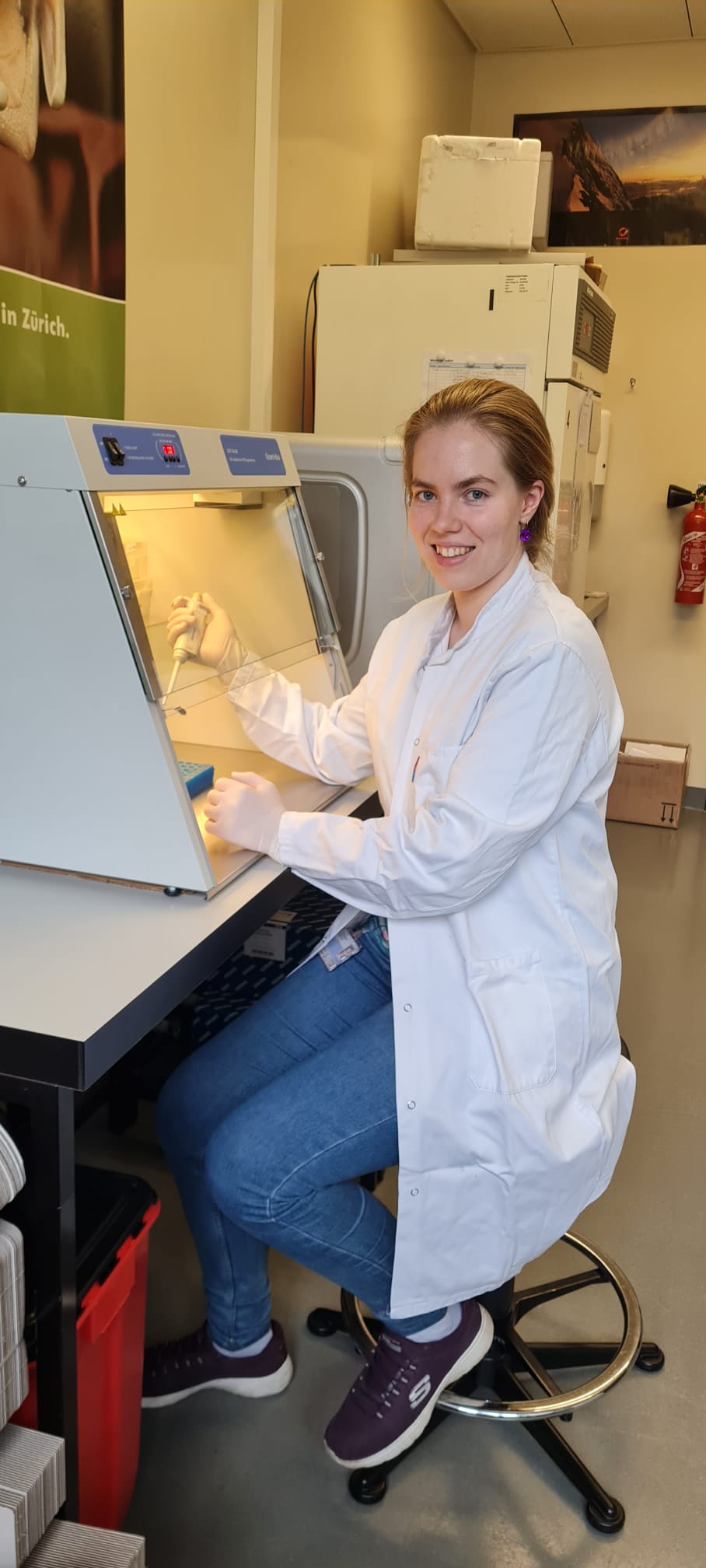Charlotte Sutter’s path into forensic science, or more precisely into forensic genetics, is quite a cliché. She has always loved television crime series, and when she entered university, the first voluntary elective course Charlotte took was a forensic toxicology analysis course. She did not understand much about the chemical basics at the time, but she also got a short introduction into other fields in forensic science, most prominently forensic genetics. Then Charlotte learned that forensic genetics is even more fascinating in real life than on television. Ever since then, she knew she wanted to do research in this field, and in this field only. Fortunately, Charlotte’s hometown has an excellent forensic genetics institute and she was fortunate enough to do both her bachelors and masters thesis there. After finishing her studies, Charlote started a PhD position in Switzerland, where she is currently focusing on DNA methylation analysis for forensic applications. In particular, she is focusing on age estimation from stain donor in different tissues and scenarios and whole methylome analysis of sudden unexplained death cases. Never having worked in any other biomedical field for a mentionable amount of time, she really hopes to continue an academic career in forensic genetics after her graduation.
What made this field so much more appealing to Charlotte than any other biomedical field, is the direct impact that scientific research has on real-life applications. In her short time as a PhD, she has seen how research she has done on methylation-based age estimation has affected decisions made for real casework samples. This direct applicability of her research onto the “real world” is something Charlotte finds rather unique to our field and extremely fascinating and rewarding!
We caught up with Charlotte and asked her to tell us a little more about herself, including how she became interested in forensic science, what she plans to do after graduation, and what she’s most looking forward to at ISHI this year.

What are your specific areas of interest within forensic DNA analysis?
As a PhD student, I am currently working on forensic methylation-based age estimation and whole methylome analysis in sudden unexplained death cases. Even as a master student, I already worked on methylation-based age estimation but also a little bit on the prediction of pigmentation traits and biogeographic ancestry. Although this was not planned from the beginning, I have come to work mainly with these “newer” fields of forensic DNA analysis, in my particular case forensic DNA phenotyping and epigenetics, which really have become my main areas of interest.
What are some of the latest developments or technologies in forensic science that excite you the most?
Though forensic DNA phenotyping is not very new anymore and I am working on it every day, it still amazes me how a little trace of DNA can be used to predict quite a lot of information of a person. So I am definitely excited about this area getting more and more attention and being continually improved and expanded. If I had to pick a new technology that I hope to be implemented much more into forensic workflows in the future, it would be the use of Nanopore sequencing. Though I have not had a chance to work with it myself, I would definitely love to try and do age estimation with this technology.
Who in the field of forensic science do you most admire and why?
I most admire people who juggle both research and casework. I have seen firsthand the significant workload involved in balancing research with day-to-day cases. However, I have also seen how this dual experience can provide an invaluable perspective for both researchers and caseworkers. Being solely in research, I find the input from my coworkers who handle both immensely helpful in understanding the most relevant questions and issues in everyday casework.. This helps me get a better understanding which gaps I need to fill with the research I do.

What's the most interesting thing you've learned so far in your forensic science studies?
The most interesting thing I have learned so far is that DNA is everywhere. Although this can be very challenging for forensic scenarios where contamination is a huge issue, it also means that DNA can be found in the tiniest traces of biological material. Before entering the field of forensic science, I doubted the seemingly magical portrayal of forensics on TV where a lead can be produced from nothing. Now, I realize even more is possible in reality.
How do you handle stress or pressure, especially when dealing with challenging studies or research?
I try to balance the work-related stress with leisure time activities I enjoy. I love making music and whenever it has been a stressful day at work, playing an instrument helps me completely unwind. That gives me new energy (and sometimes even new ideas) for the next day.
What's one thing you're hoping to learn from your experience as a Student Ambassador?
I hope to improve my ability to communicate my enthusiasm for forensic genetics to others. Other than that, I am very excited to meet new people and especially to interact and work together with this year’s other student ambassadors.
What are your aspirations for the future after completing your education?
After completing my PhD, I want to stay in the field of forensic genetics and preferably continue doing research in this area. Ever since working on my bachelor’s thesis in a forensic genetics lab, I cannot imagine doing anything else. Although I am aware that our field is relatively small and job opportunities may be limited, I am hopeful that I will be able to continue conducting research in this exciting field!

